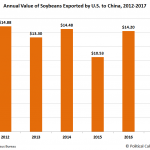This is the final post in a four-part blog series addressing the attacks on smart beta and exchange-traded funds (ETFs). Today we touch on the argument that asset classes such as emerging markets, which typically have a liquidity fear hanging over them in crises, will see exacerbated downside in the next crisis because of the presence of ETFs in the system.
Always Remember: ETFs Saved Hides as Lehman Buckled
We often say that attacking ETFs for causing crises is like saying that online travel websites are the cause of hotel and airplane bookings. The argument that ETFs exacerbate crises is particularly preposterous because it comes after one of the few corners of the market in which many people seek out and find liquidity during panics, then spins the story around into one in which the very presence of the investment vehicle (like a junk bond ETF, etc.) somehow exacerbates illiquidity.
When making their argument, attackers usually focus on riskier assets classes, including just about everything in the emerging world, plus any kind of credit that is below investment grade, but we have seen the argument applied to all marketable securities.
As we look back at the global financial crisis and forward to inevitable future crises, we need to remember that every transaction has a seller and a buyer. In a crisis, ETFs can foster price discovery at the broad market level and allow bottom-up investors to have a point of reference for when they engage in classic individual security analysis. ETFs can provide the gift of reliable price transparency1 because of their intraday trading. They offer a real-time window into the true degree of panic or euphoria that may be occurring as a crisis unfolds.
DEM During Lehman’s Collapse
Perhaps the experience of the WisdomTree Emerging Markets High Dividend Fund (DEM) during the global financial crisis can provide a glimpse into what an ETF investor in a volatile asset class would have confronted during those dark days.













Leave A Comment